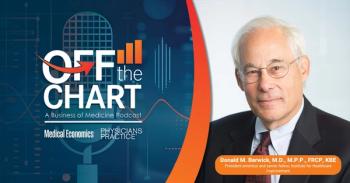
How ACA’s Medicaid Provision May Affect Physicians
Will it stay or will it go? For physicians, the provision’s continued existence, or early death, could have a greater-than-expected impact.
While much of the talk during this week’s Supreme Court hearings on the Affordable Care Act centered on the individual mandate’s constitutionality, perhaps the second-most important part of the 2,700-page healthcare law discussed was the Medicaid provision.
What makes the provision controversial is its requirement for states participating in Medicaid to cover individuals who are up to 133 percent above the federal poverty level -
When it comes to this requirement, many states feel Congress is being a big bully: States are in the position where they need federal Medicaid funding (it’s been observed by analysts that Medicaid is the largest line item in every state’s budget). But in agreeing to new terms set forth by the provision, states must overextend themselves even more than they already have.
So far,
For physician practices, considering the future of the Medicaid provision raises key questions: If, under the Affordable Care Act, Medicaid is expanded so that participating states have to cover a greater pool of participants, will physicians get reimbursed for the true cost of services, which often exceed state government reimbursement? And are there other benefits of the provision?
To answer these questions, family physician Glen Stream, president of the AAFP, said one needs to look not just at the 133 percent coverage expansion, but at all other parts of the Medicaid provision.
While the expansion of Medicaid to 133 percent of the poverty level increases the pool of people who would qualify for Medicaid coverage, it doesn’t affect how much Medicaid pays physicians per beneficiary.
“Most states limit Medicaid coverage to people who live at poverty level and meet additional requirements, such as being a child, a pregnant woman, or elderly,” Stream told Physicians Practice. “Adults who do not have children but who live at - or even below - the poverty level do not qualify for Medicaid, even if their children do get Medicaid benefits. The Affordable Care Act would increase eligibility for Medicaid to anyone who lives at or below 133 percent of the poverty level.”
However, although provision by itself doesn’t change how much Medicaid pays physicians, what does affect the payment to physicians, said Stream, is another element of the law: the Medicaid parity.
“This is why Medicaid parity - the part of the law that brings Medicaid payment up to Medicare levels - is important,” said Stream. “This will improve what Medicaid pays and can help increase the number of physicians who can accept additional Medicaid patients.”
Additionally, said Stream, “this provision doesn’t improve payment to cover ‘true costs,’ but it does bring Medicaid payment up to Medicare payment rates, which are significantly better than the typical, current Medicaid payment.”
The Supreme Court is expected to make its decision on the provision, and the rest of the law, as early as June.
Aubrey Westgate, associate editor for Physicians Practice, contributed to this report.
Newsletter
Optimize your practice with the Physicians Practice newsletter, offering management pearls, leadership tips, and business strategies tailored for practice administrators and physicians of any specialty.









